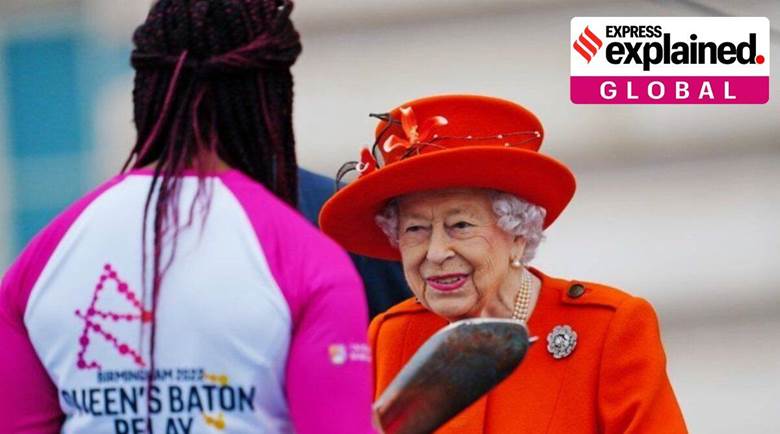Description

Copyright infringement not intended
Context: The passing of Queen Elizabeth II is a delicate moment for the British Commonwealth, 14 countries out of which continue to recognise the monarch as their Head of State, a position that is explicitly stated in the constitutions and laws of some of these countries. In these cases, changes to the law or statute might be required and could trigger calls for a referendum in jurisdictions where there is significant opposition to the current situation. Jamaica is one example, and it could well follow its regional neighbour Barbados, which left the Commonwealth after becoming a republic in 2021.

Details:
- Developed countries such as Australia, New Zealand, and Canada are constitutional monarchies, and their political systems are oriented in a way that the new monarch of the United Kingdom will as part of the usual process become their head of state.
- However, in June, Australia’s new government headed by Prime Minister Anthony Albanese appointed Matt Thistlewaite as the country’s first minister tasked with overseeing a transition to a republic, which triggered talk that a referendum to remove the Queen as head of state could follow.
Commonwealth of Nations:
- The Commonwealth of Nations, or simply the Commonwealth, is a group of 56 member countries, the vast majority of which are former British colonies.
- They are mostly in Africa, Asia, the Americas, and the Pacific.
- Three European nations are part of the Commonwealth: Cyprus, Malta, and of course, the UK itself.
- Fourteen of these 56 countries — along with the UK — constitute the “Commonwealth realms”. They are Antigua and Barbuda, Australia, The Bahamas, Belize, Canada, Grenada, Jamaica, New Zealand, Papua New Guinea, Saint Kitts and Nevis, Saint Lucia, Saint Vincent and the Grenadines, Solomon Islands, and Tuvalu.
- The British monarch — now King Charles III, the eldest son of Queen Elizabeth II — is the head of state of these countries.
- Of the remaining 41 member states of the Commonwealth, 36 are republics — this group includes India, Pakistan, Bangladesh, and Sri Lanka. The other five — Brunei Darussalam, Lesotho, Malaysia, Eswatini (formerly Swaziland) and Tonga — have their own monarchs.
- For the wider Commonwealth, the most visible uniting feature is the Commonwealth Games, the multi-sport international competition that is held every four years in one of the member countries.
History of the Commonwealth:
- The Commonwealth is home to 2.5 billion people, a third of the world’s population, the bulk of whom live in the Indian subcontinent.
- The smaller Commonwealth realms represent the last vestiges of Britain’s colonial empire, a thread that binds the British monarch to about 150 million people outside of the UK. Most living residents of the Commonwealth realms have never experienced a direct relationship with Britain.
- The Commonwealth was born out of an attempt by Queen Victoria to maintain control over the colonies as movements for independence grew stronger.
- In 1867, after Canada made its frustrations with imperial oversight known, the Queen agreed to grant the territory dominion status, which meant that it would have self-rule, but that Britain could veto policies at the monarch’s discretion.
- In subsequent decades other, primarily white, British colonies also became dominions — including Australia, New Zealand, and South Africa.
- After World War I, rising tides of nationalist sentiment in the dominions forced more changes and, in 1926, Britain and the dominions agreed that they would be equal in status. That declaration, formalised through the Statute of Westminster in 1931, marked the founding of the British Commonwealth of Nations.
- In 1949, newly independent India was invited to join the Commonwealth, and Prime Minister Jawaharlal Nehru agreed with a pivotal caveat. India asked that it should be given membership without the requirement of having to swear allegiance to the Crown. The member nations agreed — and later that year, India, Pakistan, and Ceylon (Sri Lanka) joined the Commonwealth.
- Four countries in the Commonwealth — Mozambique (1995), Rwanda (2009), Togo (2022), and Gabon (2022) — had no colonial ties with Britain. Mozambique was a Portuguese colony, Rwanda was ruled by the Belgians and Germans, and Togo and Gabon by the French.
- All these countries, however, recognise shared values and ties to the British Empire and they see the organisation as a useful network of diplomatic and cultural influence, and for exercising ‘soft power’ on the world stage.
- Their membership “testifies to the importance of English as a language of business, science and international politics and the necessity of building a range of connections to support economic development and get diplomatic messages heard”.
Leaving the Commonwealth:
- In the 1970s, a host of countries chose to leave the Commonwealth realm, including Dominica, Guyana, and Trinidad and Tobago, effectively removing the Queen as their head of state.
- In 2021, as Barbados left the realm, its Governor General argued that “the time has come fully to leave our colonial past behind”.
- Another reason for leaving is that the priorities of Britain may not align with those of member states.
- Although in recent years, those divides may be cultural, in the past they have also concerned matters of foreign policy
- Analysts have wondered whether, with Elizabeth no more, the new monarch would be able to lawfully appoint Governors-General in countries of the Commonwealth realm if those countries do not first change their Constitutions to refer to the “King” as their head of state instead of the Queen.
https://indianexpress.com/article/explained/explained-global/queen-elizabeth-dead-british-commonwealth-past-present-future-8140896/












